Politics
Portugal Becomes Latest EU Nation to Recognize Palestine
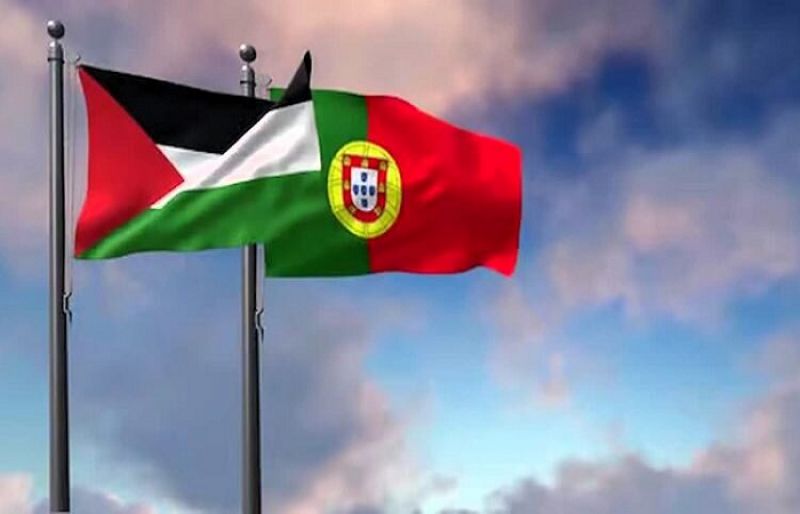

Portugal has become the latest European nation to recognize the State of Palestine a historic shift in Western foreign policy that quickly drew condemnation from Israel and criticism from the United States.
In Gaza, Palestinians hailed the decision as a symbolic victory, while Israeli Prime Minister Benjamin Netanyahu responded defiantly, declaring that a Palestinian state “will never exist.”
Washington also dismissed the recognition as “performative,” insisting its priority remains a negotiated diplomatic solution to the Israel–Hamas conflict.
Several other countries, including France, are expected to extend recognition of Palestine during high-level discussions at the UN General Assembly opening in New York on Monday.
Israel, meanwhile, is facing mounting international pressure over its war in Gaza, which has created a devastating humanitarian crisis in the enclave.
Netanyahu blasted the recognition drive as “absurd,” arguing it would “endanger Israel’s existence.” He vowed: “No Palestinian state will ever be established west of the Jordan River.”
The Israeli leader also pledged to push ahead with the expansion of Jewish settlements in the occupied West Bank, territory under Israeli control since 1967 in defiance of international law.
The UK Prime Minister Keir Starmer said Britain was formally recognising the State of Palestine “to revive the hope of peace for the Palestinians and Israelis, and a two-state solution”.
Britain and Canada became the first members of the Group of Seven advanced economies to take the step.
The United States — a staunch ally of Israel — said its “focus remains on serious diplomacy, not performative gestures”.
“Our priorities are clear: the release of the hostages, the security of Israel, and peace and prosperity for the entire region that is only possible free from Hamas,” a State Department spokesperson said on condition of anonymity.
Moral victory
The moves are a watershed moment for Palestinians and their ambitions for statehood, with the most powerful Western nations having long argued recognition should only come as part of a negotiated peace deal with Israel.
Three-quarters of UN members now recognise the State of Palestine, with at least 145 of the 193 member countries having done so, according to an AFP tally.
Australia’s Prime Minister Anthony Albanese said the move “recognises the legitimate and long held aspirations of the people of Palestine”, while Portuguese Foreign Minister Paulo Rangel called the two-state solution “the only path to a just and lasting peace”.
On the ground in Gaza, many saw recognition as an affirmation of their existence after nearly two years of war between Israel and Palestinian Islamist group Hamas.
“This recognition shows that the world is finally starting to hear our voice and that in itself is a moral victory,” said Salwa Mansour, 35, who has been displaced from the southern city of Rafah to Al-Mawasi.
“Despite all the pain, death and massacres we’re living through, we cling to anything that brings even the smallest bit of hope,” she added.
Palestinian president Mahmud Abbas hailed the recognitions as “an important and necessary step toward achieving a just and lasting peace”.
Although a largely symbolic move, it puts the four countries at odds with the United States and Israel.
US President Donald Trump said last week after talks with Starmer that “one of our few disagreements” was over Palestinian statehood.
Special burden
A growing number of established Israeli allies have shifted their long-held positions as Israel has intensified its Gaza offensive, which began with Hamas’s October 7, 2023 attack.
Since then, the Gaza Strip has suffered vast destruction, with a growing international outcry over the besieged coastal territory’s spiralling death toll and a UN-declared famine.
The UK government has come under increasing public pressure to act, with thousands of people rallying every month on the streets.
Starmer said on Sunday that Britain was acting “in the face of the growing horror in the Middle East”, and renewed calls for a ceasefire.
Starmer also confirmed plans to bolster sanctions on Hamas, denying recognition was a “reward”.
Hamas’s attack on southern Israel resulted in the deaths of 1,219 people, most of them civilians, according to an AFP tally of official figures.
Israel’s retaliatory campaign has killed at least 65,208 people, also mostly civilians, according to figures from the health ministry in Hamas-run Gaza, which the UN considers reliable.
Many obstacles remain before realising Palestinian statehood, including a decision on who would run the territory.
Politics
Trump says Pakistani PM’s ‘saving 10 million lives’ remark is an honour
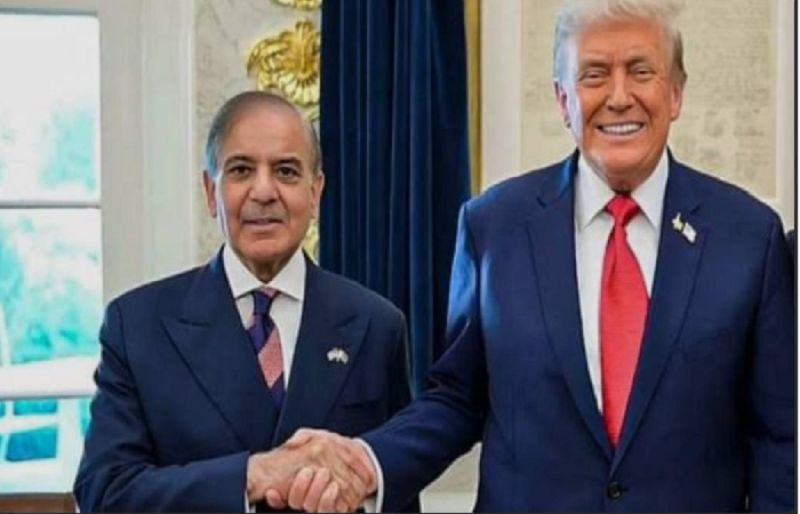
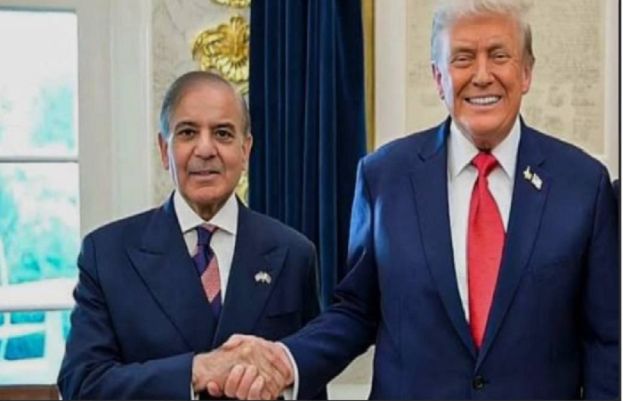
US President Donald Trump has reiterated his claim of having stopped a war between Pakistan and India, while also saying that Pakistan Prime Minister Shehbaz Sharif thanked him for saving at least 10 million lives.
He made the remarks at the renaming of Southern Boulevard to Donald J Trump Boulevard in Washington on Friday.
“In a year, we made eight peace deals and ended the conflict in Gaza. We have peace in the Middle East…We stopped India and Pakistan from fighting, two nuclear nations…The Pakistani Prime Minister said Donald Trump saved at least 10 million people, and it was amazing,” he said.
The US president further recalled that the Pakistani prime minister’s remarks were an honour for him.
Trump cited his administration’s foreign policy record and repeated assertions of brokering peace between the two nuclear-armed neighbours.
Trump has made similar claims multiple times since May 10 last year, arguing that US pressure helped defuse tensions between India and Pakistan.
Politics
Saudi King Salman leaves hospital after medical tests
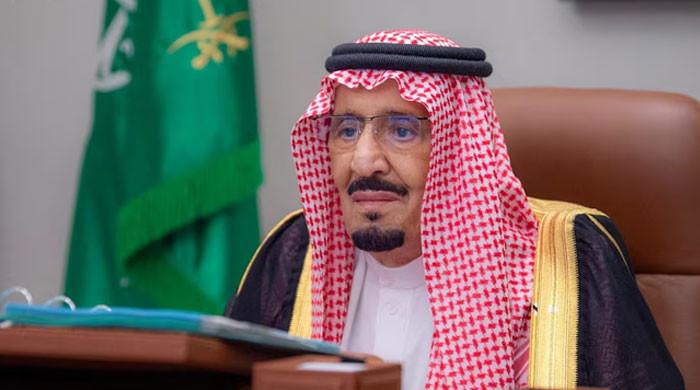
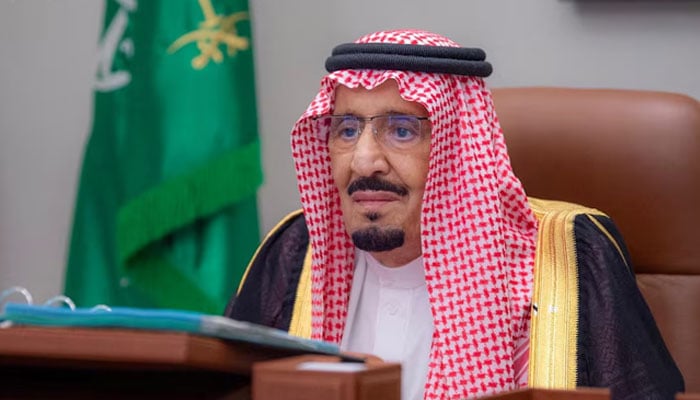
Saudi Arabia’s 90-year-old King Salman was discharged from hospital after undergoing medical tests in the capital Riyadh, the kingdom’s Royal Court said on Friday, adding that the results were “reassuring”.
The monarch “left the King Faisal Specialist Hospital in Riyadh today (Friday) after undergoing medical tests that proved reassuring”, the royal court said in a statement shared on state media, having announced his admission earlier in the day.
Saudi Arabia, the world’s biggest crude oil exporter, has for years sought to quell speculation over King Salman’s health.
He has been on the throne since 2015, though his son Mohammed bin Salman was named crown prince in 2017 and acts as de facto ruler.
The monarch’s well-being is rarely discussed, but he has been admitted for surgery and tests on multiple occasions in recent years.
In 2024, the Royal Court said he suffered from lung infections, which he recovered from.
He was hospitalised in May 2022, when he went in for a colonoscopy and stayed for just over a week for other tests and “some time to rest”, the official Saudi Press Agency reported at the time.
He was also admitted to hospital in March 2022 to undergo what state media described as “successful medical tests” and to change the battery of his pacemaker.
In 2020, he underwent surgery to remove his gall bladder.
Politics
Trump welcomes Iran move on mass executions as turmoil eases
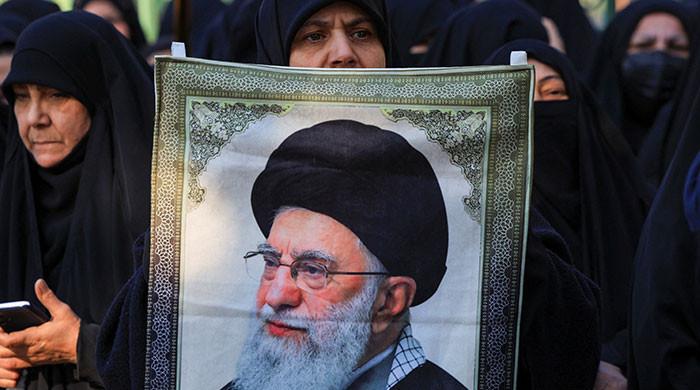
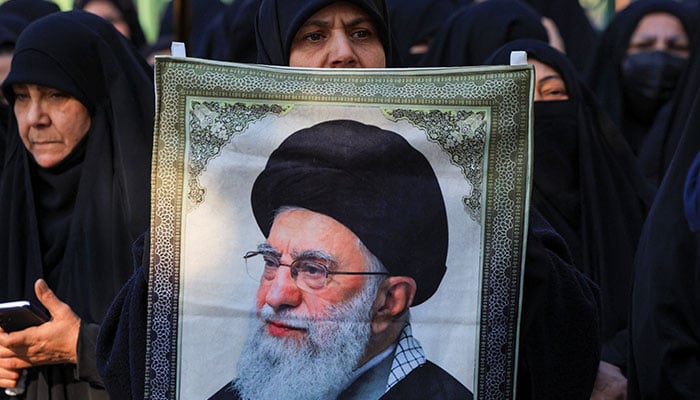
- Trump says Iran cancelled mass hangings of protesters.
- Thanks Tehran, calls move ‘greatly respected’.
- Claims more than 800 executions were scheduled.
DUBAI: US President Donald Trump has thanked Iran’s leaders for cancelling what he said were hundreds of planned executions of protesters after a crackdown.
Taking to his social media platform, he said the mass hangings had been called off and praised Tehran for the move, as deadly unrest across the country appears to be easing after a harsh crackdown.
US President Donald Trump, whose repeated threats to act had included a vow to “take very strong action” if Iran executed protesters, said Tehran’s leaders had called off mass hangings.
“I greatly respect the fact that all scheduled hangings, which were to take place yesterday (Over 800 of them), have been cancelled by the leadership of Iran. Thank you!” he posted on social media.
Iran has not publicly announced plans for such executions or said it had cancelled them.
The protests erupted on December 28 over economic hardship and swelled into widespread demonstrations calling for the end of present rule, culminating in mass violence at the end of last week. According to opposition groups and an Iranian official, more than 2,000 people were killed in the worst domestic unrest since Iran’s 1979 Islamic Revolution.
But several residents of Tehran reached by Reuters said the capital had now been comparatively quiet for four days. Drones were flying over the city, but there had been no sign of major protests on Thursday or Friday. Another resident in a northern city on the Caspian Sea said the streets there also appeared calm. The residents declined to be identified for their safety.
Prospect of US attack retreats
The prospect of a US attack has retreated since Wednesday, when Trump said he had been told killings in Iran were easing. But more US military assets were expected to arrive in the region, showing the continued tensions.
US allies, including Saudi Arabia and Qatar, conducted intense diplomacy with Washington this week to prevent a US strike, warning of repercussions for the wider region that would ultimately impact the United States, a Gulf official said.
Israel’s intelligence chief David Barnea was also in the US on Friday for talks on Iran, according to a source familiar with the matter, and an Israeli military official said the country’s forces were on “peak readiness”.
As an internet blackout eased this week, more accounts of the violence have trickled out.
One woman in Tehran told Reuters by phone that her daughter was killed a week ago after joining a demonstration near their home.
“She was 15 years old. She was not a terrorist, not a rioter. Basij forces followed her as she was trying to return home,” she said, referring to a branch of the security forces often used to quell unrest.
The US is expected to send additional offensive and defensive capabilities to the region, but the exact make-up of those forces and the timing of their arrival was still unclear, a US official said, speaking on condition of anonymity.
The US military’s Central Command declined to comment, saying it does not discuss ship movements.
Pahlavi calls for increased pressure
Reza Pahlavi, the US-based son of Iran’s last shah who has gained increasing prominence as an opposition figure, on Friday urged the international community to ramp up pressure on Tehran to help protesters overthrow the present setup.
“The Iranian people are taking decisive action on the ground. It is now time for the international community to join them fully,” said Pahlavi, whose level of support inside Iran is hard to gauge.
Trump this week appeared to downplay the idea of US backing for Pahlavi, voicing uncertainty that the exiled royal heir who has courted support among Western countries could muster significant backing inside Iran. Pahlavi met US envoy Steve Witkoff last weekend, Axios reported.
Iranian-Kurdish rights group Hengaw said that there had been no protest gatherings since Sunday, but “the security environment remains highly restrictive”.
“Our independent sources confirm a heavy military and security presence in cities and towns where protests previously took place, as well as in several locations that did not experience major demonstrations,” Norway-based Hengaw said in comments to Reuters.
Reports of sporadic unrest
There were, however, still indications of unrest in some areas. Hengaw reported that a female nurse was killed by direct gunfire from government forces during protests in Karaj, west of Tehran. Reuters was not able to independently verify the report.
The state-affiliated Tasnim news outlet reported that rioters had set fire to a local education office in Falavarjan County, in central Isfahan Province, on Thursday.
An elderly resident of a town in Iran’s north-western region, where many Kurdish Iranians live and which has been the focus for many of the biggest flare-ups, said sporadic protests had continued, though not as intensely.
Describing violence earlier in the protests, she said: “I have not seen scenes like that before.”
Video circulating online, which Reuters was able to verify as having been recorded in a forensic medical centre in Tehran, showed dozens of bodies lying on floors and stretchers, most in bags but some uncovered. Reuters could not verify the date of the video.
The state-owned Press TV cited Iran’s police chief as saying calm had been restored across the country.
A death toll reported by US-based rights group HRANA has increased little since Wednesday, now at 2,677 people, including 2,478 protesters and 163 people identified as affiliated with the government.
Reuters has not been able to independently verify the HRANA death toll. An Iranian official told the news agency earlier this week that about 2,000 people had been killed.
The casualty numbers dwarf the death toll from previous bouts of unrest that have been suppressed by the state, including in 2009 and 2022.
-

 Tech4 days ago
Tech4 days agoNew Proposed Legislation Would Let Self-Driving Cars Operate in New York State
-

 Sports6 days ago
Sports6 days agoClock is ticking for Frank at Spurs, with dwindling evidence he deserves extra time
-
Sports1 week ago
Commanders go young, promote David Blough to be offensive coordinator
-

 Fashion6 days ago
Fashion6 days agoSouth India cotton yarn gains but market unease over US tariff fears
-

 Entertainment4 days ago
Entertainment4 days agoX (formerly Twitter) recovers after brief global outage affects thousands
-

 Fashion6 days ago
Fashion6 days agoChina’s central bank conducts $157-bn outright reverse repo operation
-

 Business1 week ago
Business1 week agoSoftBank reduces Ola Electric stake to 13.5% from 15.6% – The Times of India
-

 Sports6 days ago
Sports6 days agoUS figure skating power couple makes history with record breaking seventh national championship






